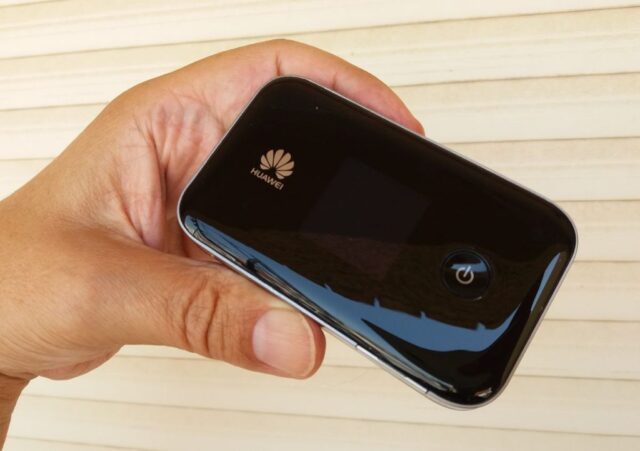You may have seen pretty photos or viewed flashy video clips that show the sunny side of #vanlife when traveling and working in a motorhome or camper van. The reality is a bit more complex than Instagram photos because anything can happen on the road, and completing work assignments by a deadline requires discipline and travel plans that adapt to work requirements. Also the tools required for mobile work and life have to be carefully selected. Every year, I’m on the road in Europe for months. Here are the key things that I have found essential when working on the road in a campervan.
Bring your own internet connection
The key thing with remote work is to be connected to the world. Clients or your boss may have new assignments for you, subcontractors may want to negotiate about scheduling problems or your accountant needs paperwork. In practice, relying on public Wi-fi hotspots simply won’t cut it. You must have your own internet access point always available.
A mobile, battery powered Wi-Fi hotspot router is the device every traveling professional needs. The device has its own SIM card for connecting to mobile networks. Your PCs, tablets and other devices connect to the router using Wi-Fi. All your Wi-Fi devices believe the mobile router is an ordinary Wi-Fi hotspot and happily access the internet through it. An additional benefit is security because you manage the security of the Wi-Fi hotspot yourself. More security tips here.
Create a travel plan, and be ready to change it on the fly
Some travelers have a rough idea which destinations they are going to visit, whereas others have a detailed plan with all the dates and activities carefully written down. Whatever your planning style is, be prepared to quickly adjust the plans when required. Often the reason is work (perhaps there is a new task from the employer or a client), or problems with the vehicle. Only once so far, authorities or new rules have enforced me to change my plans – it happened during the pandemic when travel restrictions were already being lifted in Europe, but for summer months national authorities suddenly reintroduced the restrictions starting the next day.
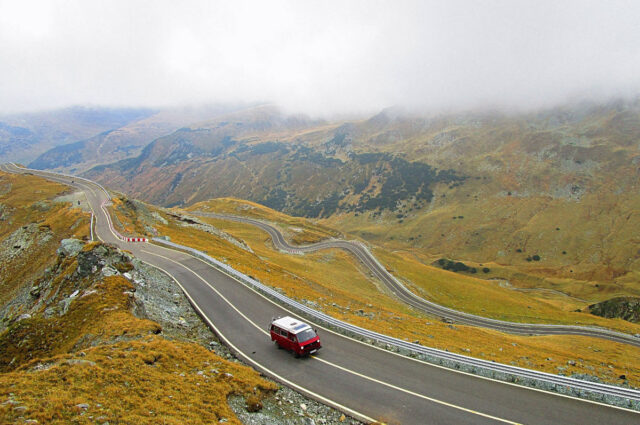
Don’t plan any work for travel days
When you travel, you travel. When you work, you work. It is as simple as that. Avoid mixing these two activities. Enjoy the days when you are traveling without stress from work. Be a tourist, go sightseeing, explore nature or history along the route. When you have found a place to stay, take your time and work. Take a hike or dip into the sea, then work. Repeat until the task is done.
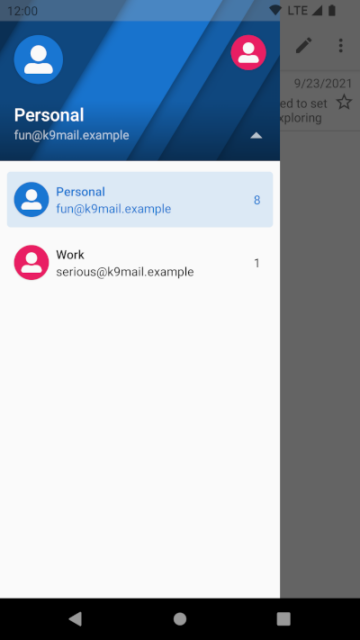
Check your email and messages a few times a day no matter what
It is important to be connected to the employer or clients at all times. During work days it shouldn’t be a problem if you are working on a PC, but during travel days you have to find your own rhythm to stay connected with the world. For me, it means checking messages in the morning, during travel breaks, and in the evening. If I’m on the road, I respond briefly to important messages only, and let the person know when I will deliver more substance.
Do your shopping and other errands during travel days
When the petrol tank (or battery) is full, toilet tank empty, water, wine and bread supplies stocked up, everything is fine in a campervan. When it is time to get something from a pharmacy, buy a prepaid SIM card in a country you have entered, or you need to stock up food, this is the fastest way to do it: deviate from your route to a nearby small town. Don’t go to a tiny village and definitely not to a large city, but a small town with all the essential services easily accessible along its main roads.
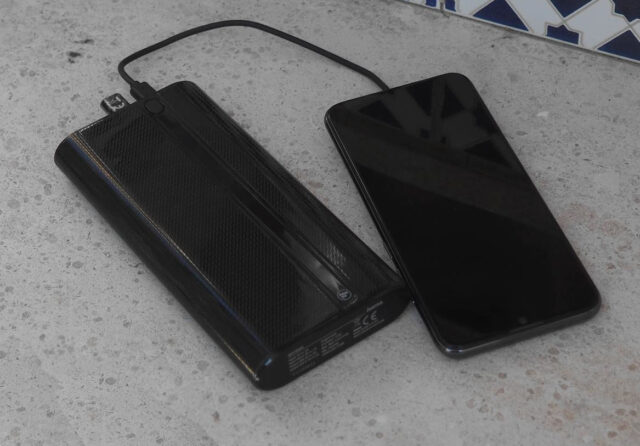
Bring your own power source for electronic devices
The freedom to stay a night under a tree by a lake, on a beach, in a city center, or at an autobahn rest area is one of the things that make touring in a campervan and motorhome enjoyable. Since only camp sites and motorhome parks provide electricity to travelers, you must have a means to power your phones, Wi-Fi hotspot, cameras, PCs, and whatever other battery powered devices you have. You need a power bank. They can be categorized in three sizes: tiny (size of a cigarette box), compact (slightly larger than a modern phone), and large batteries carried along in your vehicle. Forget the tiny battery bank. Depending on the number of mobile devices you are using, and how often you stay at a place where you get electricity, consider getting either a compact or large power source.
Have a backup navigator, and one more backup
In the era of paper maps, it was normal to have two or three maps for navigation: a high level map that showed a large region (like those foldable maps of Europe), a book of road maps that showed details for navigating the roads, and often we purchased a local map in a destination. Electronics maps are different because you see both an overview and the fine details on a same screen, but the problem is battery life and the possibility of losing or breaking the navigation device. Prepare a spare phone or tablet to be used as the navigator if the primary device can’t be used. Important: only download an app and maps that work offline without internet connection.
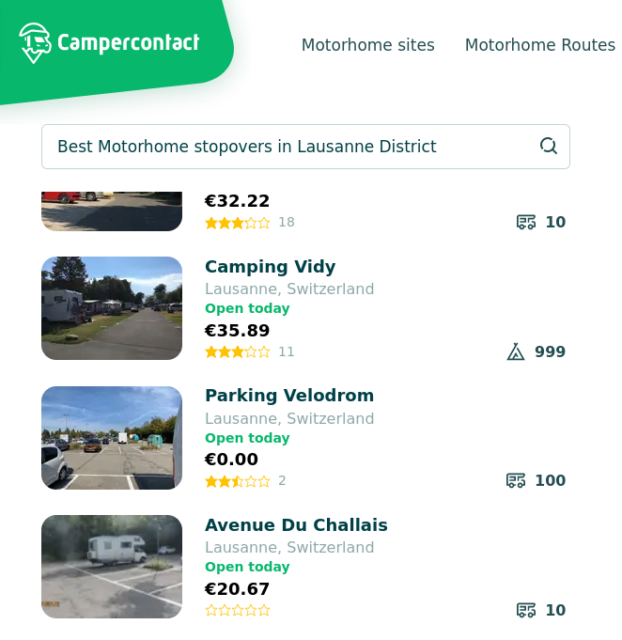
If you haven’t booked your next night’s stay, have a plan A, B, and C ready when you approach your destination
I haven’t booked a single stay in advance ever since I started my campervan adventures as a digital nomad. Although I have an idea where the next overnight stay will be, it is possible that I discover something interesting on the way, and it takes time to explore it. That’s why I have learned to look up a few alternatives once the overnight destination has been more or less decided. The challenge is that during summer months, caravan parks in popular destinations can be fully booked. During winter months, camp sites may be closed. In the autumn, that beautiful Mediterranean seaside car park can be packed with motorhomes. Learn to use your favorite app, like Park4night, Campercontact, or Stayfree and choose a few places where you might want to stay in advance.
Have live business and work related discussions on the phone
When someone is traveling in a motorhome or campervan, it is natural that other people think the travelers are on holiday. Trying to convince a business client who doesn’t have a clue about working while traveling in a camper tends to be waste of time. The idea of working in a van or motohome on a beach in Southern Europe just doesn’t fit into a world view of many people. This is why you might consider avoiding live video conferences with business contacts, and also consider avoiding talking about the current location unless directly asked.
Consider an insurance that comes with roadside assistance
It is inevitable that you will have problems with your vehicle after touring long enough. I have had tire punctures in countries where I didn’t speak the language, squeaking brake pads that decided to wear out just when it was time ascend to the Alps, and a front bumper that scratched a pavement and dropped on the ground at a carpark of a Belgian grocery store. Things happen.
In Europe, large insurance coverage may include roadside assistance in the home country and in other European countries. When a problem arises you can phone to your insurance company’s helpline, explain the problem and where you are, and wait for help. It is extremely valuable, and saves plenty of time and hassle.
A North American perspective to working in a motorhome or campervan is provided in this blog post.

